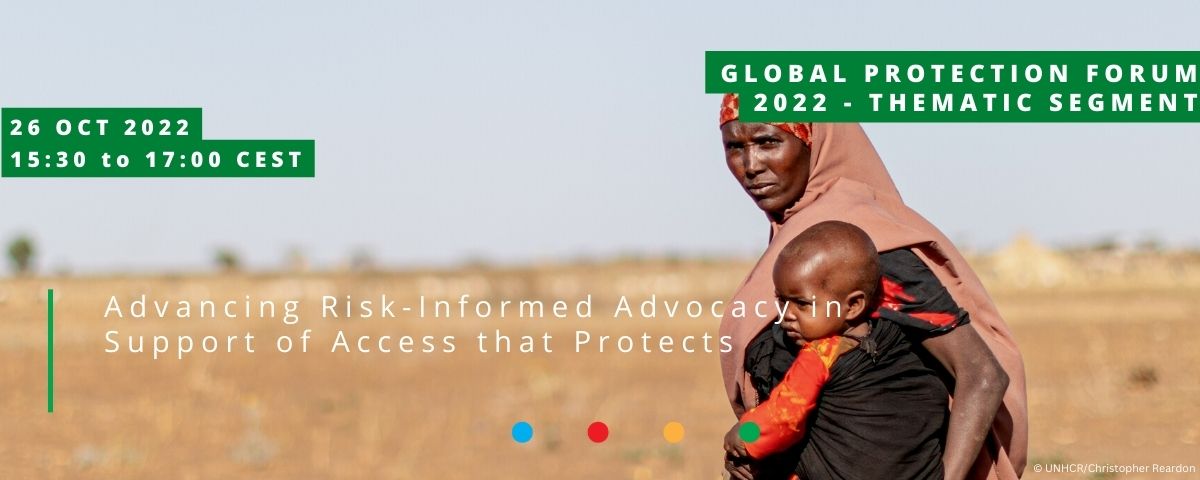All aspects of humanitarian action carry risk: the security risks linked to operating amidst active conflict, the potential harm done to communities excluded from response efforts and the risks of having assistance diverted by parties to the conflict, to name a few.
The risks of engaging in protection advocacy are often some of the most visible - captured by the media when a senior humanitarian is made persona non grata by a government for having spoken out, or when an organization is denied access to communities facing protection risks as (perceived) blow-back from its advocacy efforts.
And yet, as highlighted in recent research by the ODI, it’s clear that many of the risks associated with protection advocacy are often assumed, rather than assessed, and frequently overstated. In a survey with international, national and local protection organizations, 68% indicated they had not experienced repercussions related to the advocacy work they engage in, while 70% of local and national actors specified they had not experienced repercussions for undertaking advocacy to strengthen protection. Furthermore, there are myriad examples from across crisis contexts where advocacy is being used to actively strengthen access and protection outcomes, and collective approaches are opening up space for national actors in particular to more directly engage in advocacy on key protection issues. At the same time, however, when there are adverse impacts from protection advocacy efforts and an organization is faced with suspended operations or other consequences, the story often stops there, with little examination of how organizations manage these residual risks, impacts on other protection actors and what it concretely means for communities’ access to protection and other services.
How protection actors are assessing and managing advocacy related risks and taking forward risk-informed advocacy efforts in support of access and protection are critical questions across the sector, with direct impacts on our shared commitment to protection advocacy actions. What’s more, these questions are most often considered internally by organizations but not often enough collectively unpacked and examined, including in terms of how to better share risks between different actors. At a time when access that protects is increasingly constrained, using risk-informed advocacy to strengthen access and protection outcomes is more of an urgent imperative than ever before.
Through this session we will look more closely at the ways different humanitarian actors, including local/national protection actors, are assessing and managing advocacy-related risks and residual risks on a daily basis, what learnings and good practices they can share and how, as a sector, we can further advance collective, risk-informed advocacy for the protection of affected communities that is based on evidence and experience, not assumption.
The expected outcome of this session is to elicit reflections on potential ‘risk breakers’, and to promote more cross-learning and collective action in actively managing, and more strategically, sharing risks related to advocacy. Our ultimate aim is to have the humanitarian sector re-evaluate how we approach advocacy for protection and, instead of assuming risks which prevent such advocacy, uses smart, risk-informed approaches that support the protection of affected communities.
Simultaneous interpretation is available in French, Spanish and Arabic.
Background Reading:
Protection Advocacy by International NGOs in Armed Conflict Situations
Complementary approaches between international and local protection advocacy
Independent Review of Implementation of the IASC Protection Policy


